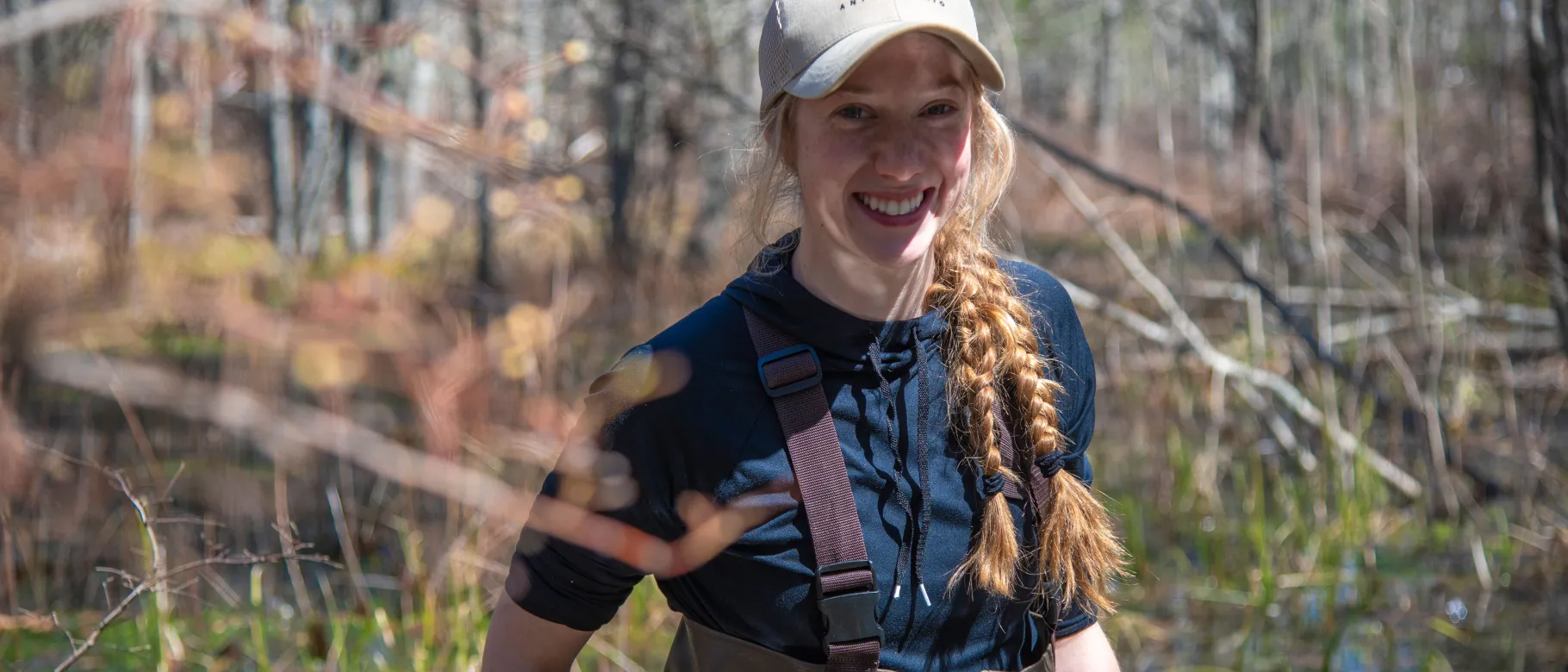UNE Summer Sustainability Fellowship returns for 2025, expanding opportunities for student learning and local impact
Sixteen fellows will engage in full-time, paid work addressing Maine's sustainability challenges this summer

Building on the success of its inaugural year, the University of New England has announced its latest cohort of Summer Sustainability Fellows who, in the coming months, will complete an array of hands-on, solutions-driven projects to address some of Maine’s most pressing sustainability challenges, including environmental, economic, and public health concerns.
The UNE Summer Sustainability Fellowship program, now in its second year, gives students and recent graduates the opportunity to apply their academic training to real-world challenges in collaboration with community and organizational partners across Maine.
This year, 16 fellows will engage in full-time, paid work over 10 weeks, each assigned to a site-specific project designed by a local municipality, nonprofit, University office, or private business partner. Fellows receive a $6,800 stipend and are eligible for up to three academic internship credits.
Fellows complete immersive, high-impact activities aimed at better understanding our physical and cultural surroundings and improving the health of people, communities, and the natural world, in line with UNE’s core mission and the 17 United Nations Sustainable Development Goals.
Projects span a range of sustainability issues, including marsh restoration and coastal remediation, food waste reduction, emissions inventory, eelgrass and aquaculture studies, terrestrial mapping, urban farming, water conservation, and more.
This year’s cohort will contribute to work underway at a variety of public, private, and nonprofit organizations including the City of Biddeford, Town of Cumberland, Casco Bay Estuary Partnership, Kennebunkport Conservation Trust, American Lighthouse Foundation, and Heart of Biddeford, among others, as well as UNE’s own Offices of Sustainability and Innovation.
The partnerships reflect a growing interest in building capacity for sustainability in southern Maine and give students access to meaningful, applied work that connects back to their academic disciplines, said Associate Program Coordinator Megan Letendre.
“I’ve had the pleasure of meeting this year’s fellows as we gear up for the summer, and I’m truly impressed by the depth of knowledge and expertise each one brings to the table,” Letendre said. “I’m genuinely looking forward to working with them — and getting to know each of them better — throughout the summer.”
Fellowship projects are co-designed by the host organization and UNE, with clear deliverables and comprehensive mentoring provided throughout the summer. Fellows also take part in weekly professional development sessions, collaborate in thematic working groups, and present their work at a culminating showcase.
Now in its second year, the program has already demonstrated its value. Last year’s fellows helped towns develop plans for addressing urban heat, mapped new conservation trails, and built sustainability strategies for local institutions.
Several projects have since been implemented or extended, offering lasting value to host organizations while helping students shape their professional paths, said Cameron Wake, Ph.D., director of UNE North, the University’s center for North Atlantic studies, which administers the fellowship in collaboration with UNE’s College of Business.
“The fellowships provide the opportunity for our students to transition from the theory of the classroom to the application of sustainability practices in the world they will be graduating into,” said Wake, a climatologist and prominent research author. “They develop additional critical thinking, problem solving, and communication skills through this experience that are critical as they pursue sustainability related careers.”
Full project descriptions for each fellowship project are available online.